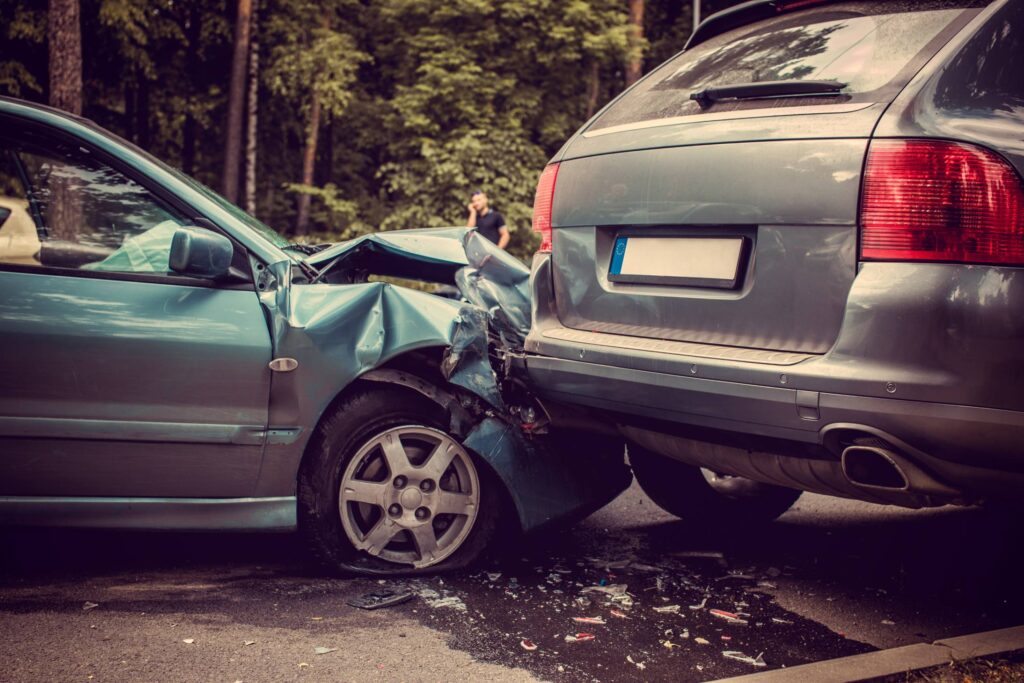Katie Bug’s Law In Louisiana: Everything You Need To Know
Katie Bug’s Law is named in memory of Katie Grantham. Katie was critically injured in a 2017 traffic crash in Bossier Parish. Katie survived seven days on a ventilator, but she never regained consciousness. She was four years old at the time of her death.
The Katie Bug’s Law allows police to drug test drivers who cause accidents with injuries in Louisiana. The earlier state law allowed for post-accident drug testing only when a collision results in an on-site fatality.
In a two-vehicle accident, 48-year-old Shane Christopher DeMoss ran a red light at an intersection, striking the vehicle Katie Grantham was riding. Katie was thrown from her booster seat and suffered severe spinal cord injuries.
DeMoss was ticketed in the accident that left Katie suffering fatal injuries. He had a lengthy history of criminal and traffic violations — 16 since 1990. DeMoss was sentenced to 10 days to be served on weekends to keep his job. Louisiana State laws prevented trying DeMoss for more severe charges that could have resulted in more jail time. Because Katie died in the hospital and was not at the scene, DeMoss was not drug tested. DeMoss passed a field sobriety test, but when police later searched his truck, they found meth, pills, and alcohol.
A record-breaking verdict was reached on Friday, March 10, earlier this year, in the civil trial for Katie.
The trial verdict resulted from a lawsuit filed by the Grantham family in which they sued DeMoss, the vehicle’s driver causing the accident, and his employer (Stuart Petroleum Testers).
The lawsuit alleged that Stuart Petroleum missed several red flags that should have kept DeMoss from getting behind the wheel of the company’s vehicles.
The jury awarded Katie’s parents $200 million each. An additional $5 million was awarded for the mother’s injuries in the wreck. Another $4,122,013 was awarded in punitive damages. The jury found that DeMoss was 10% at fault, while his employer, Stuart Petroleum Testers, Inc., was 90% at fault.
Act No. 408 (Katie Bug’s Law)
Act No. 408 amended La. R.S. § 32:681. The Act now allows officers to determine whether a driver should be tested for drugs and alcohol in accidents that involve serious bodily injuries. The Act also considers that the operator of any motor vehicle or watercraft involved in a collision or crash on the public roads or waterways has given consent to a chemical test or tests of blood, urine, or other bodily substances to determine the presence of any abused substance or controlled dangerous substance.
Such tests shall be administered in those crashes or collisions where:
1. A fatality occurs;
2. It is foreseeable that a citation for a traffic violation of an arrest is imminent and the investigating officer finds that a suspected serious bodily injury occurred;
3. The operator voluntarily agrees to a chemical test; or
4. A search warrant is issued ordering the collection and testing of any bodily substance.
Drugged Driving Is A Criminal Offense In Louisiana
An individual is guilty of DUI if they drive a motor vehicle under the influence of any controlled, dangerous substance.
Katie Bug’s Law now ensures that any driver ticketed in a crash in Louisiana where someone is badly injured will be drug tested. The Act provides that impaired drivers don’t get to leave the scene of an accident they caused.
A DUI conviction can have severe consequences, especially for a commercial driver’s license (CDL) driver. Fines, possible jail time, and the inability to obtain another commercial driving job are all possible outcomes of a conviction.
According to a task force set up by the Louisiana governor to take steps to stem the rise of drivers operating their vehicles under the influence of alcohol and drugs, one out of every four drivers in the state is operating their cars while drunk or on drugs. The state’s zero-tolerance law concerning driving under the influence now extends to illicit and prescription drugs.
If a driver under the influence of drugs in Louisiana hit you and caused you injuries, then you can file a personal injury lawsuit against them. You can use evidence of the driver’s impairment and any other traffic violations to establish negligence.
While drug tests indicate whether the driver took drugs, they are less reliable at proving whether the driver was under the influence at the time of the crash.
A personal injury lawyer in Louisiana can request the at-fault driver’s medical records to find out if they were on a prescription medication that could cause impairment at the time of the accident. Usually, this type of information is only available with getting a court order.
Bart Bernard Injury Law – Legal Representation Rooted in Compassion
Individuals who cause accidents and are found to have been under the influence of drugs can face civil liability and possibly punitive damages along with the other damages common in Louisiana car accident cases. However, insurance companies regularly deny and undervalue these types of claims. The compassionate lawyers at Bart Bernard Injury Lawyers understand that while driving under the influence of drugs is an illegal or intentional act, causing an accident that results in injuries is not. It is an act of negligence, which the insurance company should be obligated to cover.
Louisiana’s personal injury law firm will be with you through these challenging times. Our compassionate yet aggressive attorneys will provide sound legal advice, explain each step along the way, and assist with your family’s emotional and legal needs. Our firm always has your best interests at heart.
While most cases do end in settlements, there are times when a lawsuit may be necessary. At Bart Bernard Injury Lawyers, we are prepared for either option.
If you or a loved one have been injured in an auto accident in Louisiana because of a drugged driver’s negligence, you have the legal right to pursue compensation.
Call us today for a free initial consultation to review your claim.





